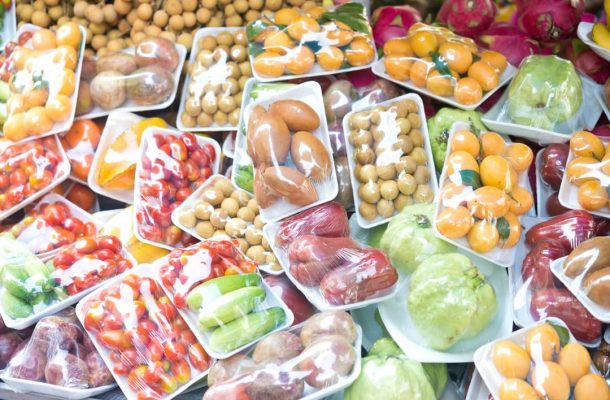Packaging plays a vital role in the food industry. Good packaging can ensure that food and beverages are protected from contamination or tampering and retain their desired quality throughout their shelf life. Despite the importance that packaging plays, the packaging industry hasn’t kept pace with the continuous innovations made in technology.
Lifestyle changes have led to an increase in convenience foods. Many of these packaged foods are often individually packed with at least two layers of packaging involving primary and secondary packaging. With the advancement in engineering, packaging now comes in multilayered structures, making it difficult to recycle.
The COVID-19 pandemic has also changed the way foods are sold. Few foods are sold unpackaged or displayed at the counter without being individually packed.
The practices we have followed have contributed to the high annual per-capita plastic use, and Malaysia ranks second-highest in plastic waste generated in Asia.
The food processing sector contributes to 10% of Malaysia’s manufacturing output, with export earnings from processed foods reaching RM21.76 billion in 2019.
The current rate of plastic waste production is far exceeding the rate of plastic degradation. This is worrying as it could cause an imbalance in the biomes, resulting in water pollution.
Recycling plastic packaging is one way of reducing plastic waste, but recycling plastic food packaging is costly. It has a higher carbon footprint, requiring pre-processing to remove food residues prior to the recycling process. Ironically, virgin plastic is cheaper and easier to obtain.
To reduce plastic waste and tackle plastic pollution, an innovative packaging material made from sustainable and biodegradable materials is essential.
Biopolymer-based packaging film, made from sustainable raw materials with a simplified end-of-life disposal, is one alternative packaging that can lead to a reduction in global dependency on fossil fuel resources for packaging.
Our research project produces biopolymer film from sustainable raw materials, advocating the green and sustainable approach in food production.
It provides a non-toxic alternative to single-use plastic food packaging, and can be used in packaging fruits, dried food, oil and more. Its high biodegradability allows for simple disposal.
We use simple film production – solvent casting methods and naturally sourced ingredients – to produce sustainable food packaging. The biopolymer film is produced in a closed-loop system and fits well into the sustainable reduction of greenhouse gas emissions. This alternative food packaging has short-term durability to keep the product fresh while preserving its rapid biodegradability.
The increasing consumer demand for renewable and sustainable alternatives to petroleum-based plastics has driven the innovation of biopolymer-based packaging. Bio-packaging has been applied in packaging industries, consumer goods, textiles, agriculture, horticulture and automotive sectors. Fewer applications are found in electronics, coatings, adhesives, and the building and construction sectors.
Biopolymer-based packaging materials decompose quickly and don’t produce toxic compounds. They also have lower carbon emissions when recycled.
Despite these advantages, biopolymer-based packaging has yet to see widespread application due to barriers such as cost and scale.

The life cycle of bio-packaging materials, and their importance.
From a technical perspective, the existing biopolymer-based packages cannot fully match the characteristics of petroleum-based plastics. Therefore, our research team has applied various technologies and processing methods to modify the raw materials to produce biopolymer-based packages with properties identical to existing petroleum-based packages.
Our research team is now translating the research to application. Feasibility tests are being conducted to understand better the biopolymer packaging properties, such as mechanical and water vapour barrier properties, by focusing on the performance test using biopolymer film in different foods.
The research project is expected to be completed in two years.
This article was published by Lens.















